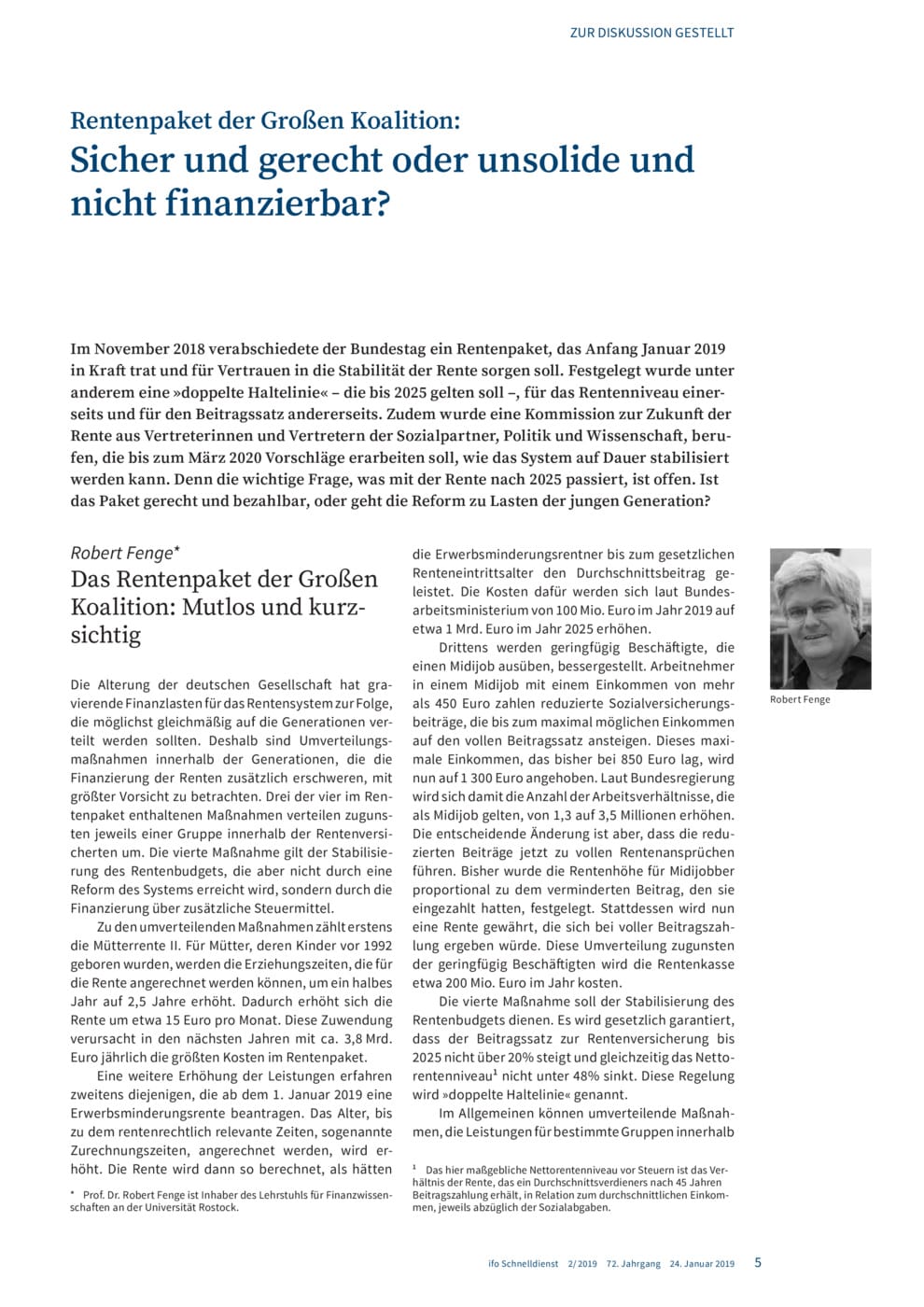Grand Coalition Pension Package: Secure and Fair or Unsound and Unaffordable?
ifo Institut, München, 2019
ifo Schnelldienst, 2019, 72, Nr. 02, 05-31

In November 2018, the Bundestag passed a pension package that came into force at the beginning of January 2019 and is intended to build trust in the stability of Germany’s pension scheme. Among other things, a "double holding line" was defined - which is to apply until 2025 - for the pension level on the one hand and for the contribution rate on the other. In addition, a Commission on the Future of Pensions has been appointed from representatives of social partners, politics and science, which is to draw up proposals by March 2020 on how the system can be stabilised in the long term. The key question of what will happen to pensions after 2025 is still open. Is the package fair and affordable, or does the reform excessively the younger generation? Robert Fenge, University of Rostock, describes the Grand Coalition’s pension package as "toothless and short-sighted". None of the parties dares to take urgent reform steps, such as raising the retirement age. In addition, the pension package does not include a reform of state-funded subsidised pensions. Jochen Pimpertz, Institute of the German Economy, Cologne, discusses whether the Grand Coalition’s social and pension policy goals are correctly targeted, or whether they could be pursued more effectively and efficiently in other subsystems of social security. The statutory pension insurance is overburdened with the claim of effective poverty prevention. According to Tim Köhler-Rama, University of the Federal Public Administration, the 2018 pension package does not solve any problems. To achieve the goal of avoiding poverty in old age, effective redistribution mechanisms within the pension system are needed in favour of vulnerable groups like the disabled, low-income earners and the long-term unemployed. The introduction of compulsory insurance for the self-employed is also overdue. Reiner Holznagel, Bund der Steuerzahler Germany, points out that a high gross pension alone is useless. In his view, the topic of "pension taxation" was not discussed enough in the debate, as one in five pensioners now have to pay income tax. Felix Welti, University of Kassel, highlights that linking the risks of old age and reduced earning capacity is associated with disadvantages; and that there is still a considerable need for reform, especially in the case of the reduced earnings capacity pension. Martin Werding, University of Bochum, even sees the double finishing line for pension levels and contribution rates as a direct counter-effect to long-term reform trends. According to Uwe Fachinger, University of Vechta, the measures contained in the pension package do not offer long-term security. In his view, the path taken continues to move further away from an efficient pay-as-you-go pension that could do justice to the goal of adequate income replacement. Karl-Heinz Paqué, University of Magdeburg, believes that the pension reform is lacking in intergenerational justice, as the measures adopted favour of the elderly and at the expense of the following generations.